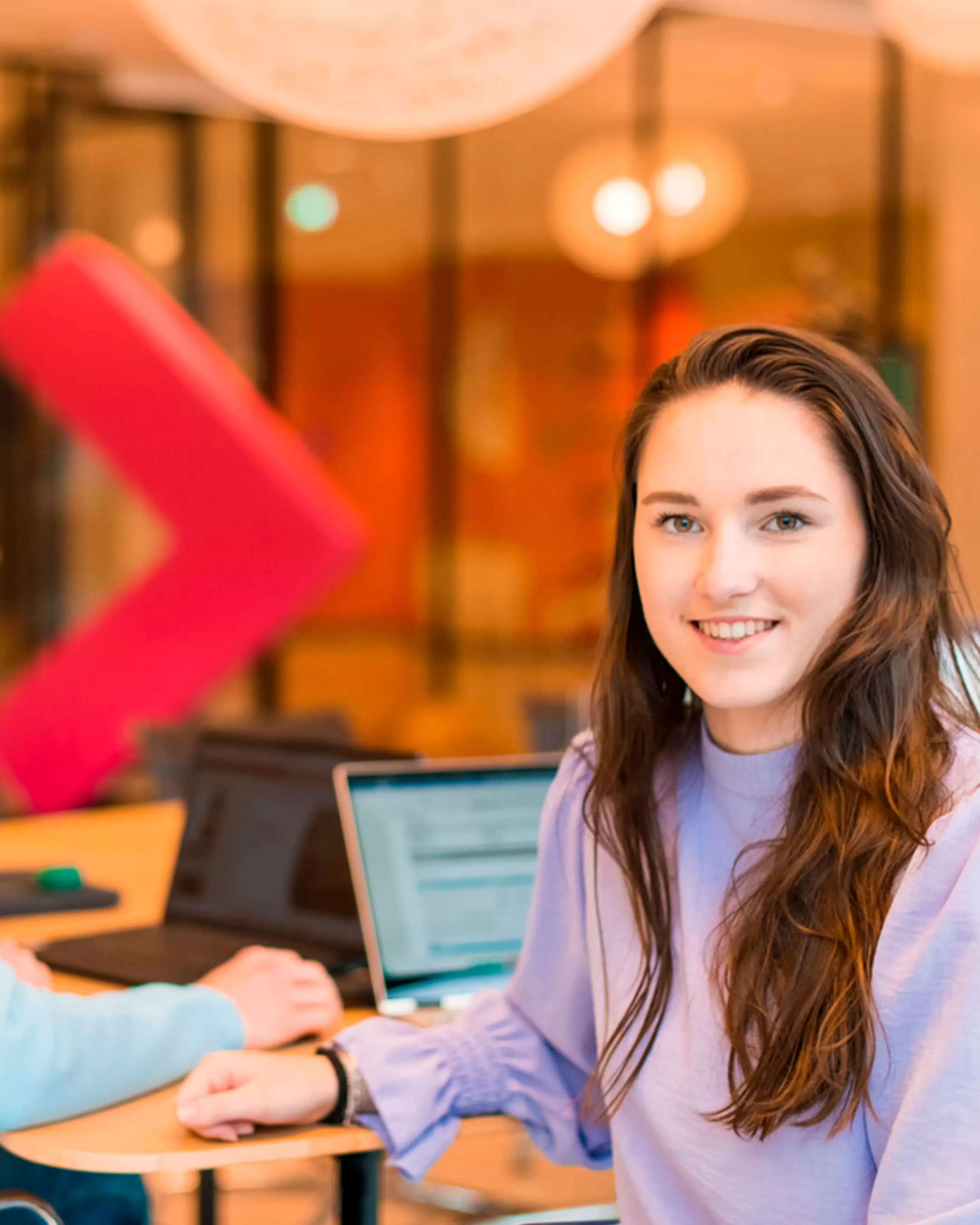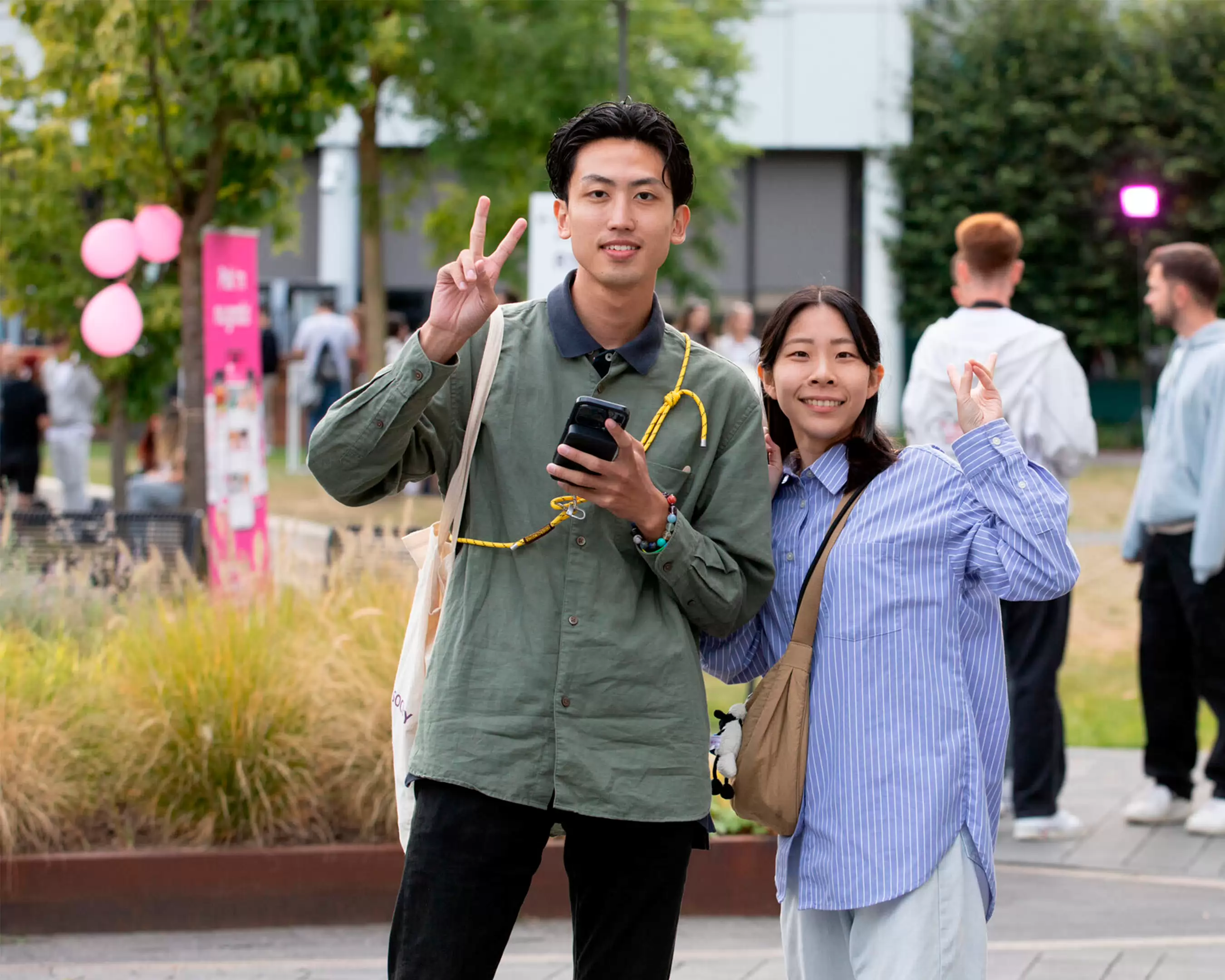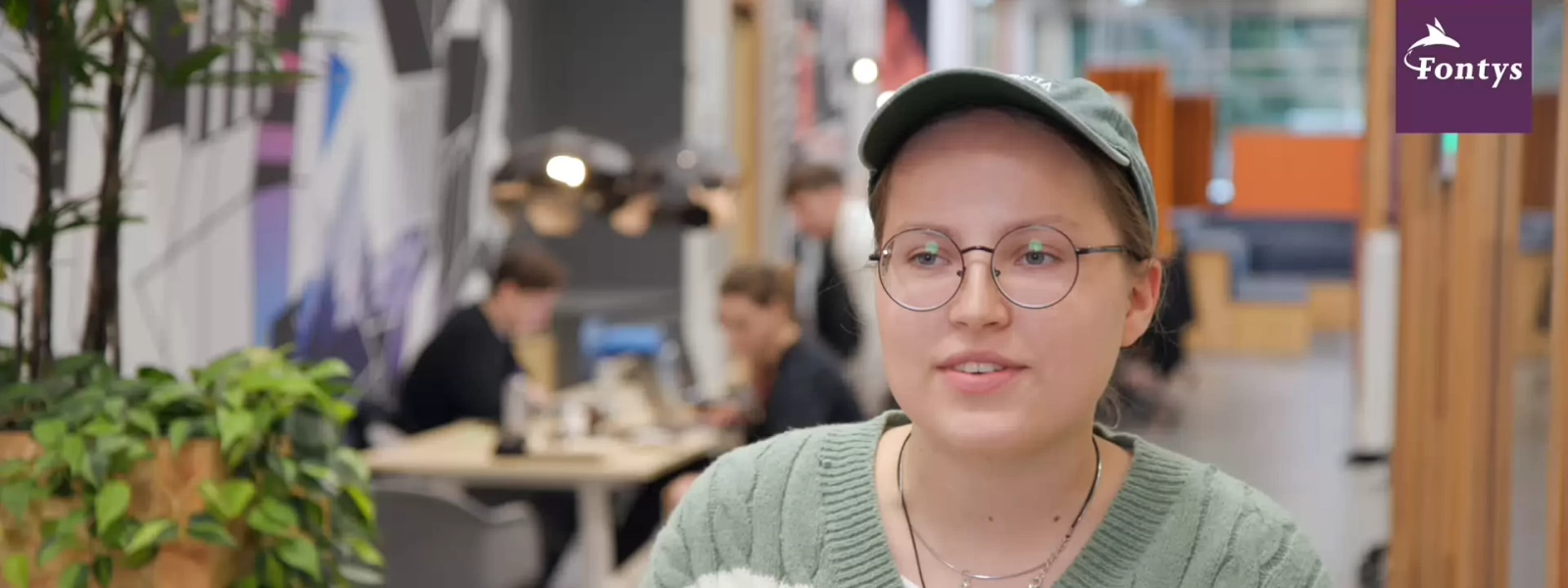

Minor Transmedia Design
- Starts February and September
- English
- 30 ECTS
- 5 months
About this minor
In the minor Transmedia Design & Storytelling, you will not only think about what story to tell, but also how to tell it. You will explore innovative ways of storytelling using multiple platforms and learn how to create interactive and participatory stories.
You will do so by designing a transmedia production yourself (for example a campaign, an art-project, an immersive experience, an interactive documentary, etc). You will explore all kinds of media tools and techniques to create a cohesive, engaging experience. Experimenting with new media techniques, like VR, AR, and generative AI tools is encouraged.
To get a good view on our day to day activities, follow us on Instagram.
Why Transmedia Design & Storytelling?
- You will discover the world of transmedia and storytelling.
- You will learn how to connect strategy with creativity.
- You will explore cutting-edge media techniques.
- You will be surrounded by multiple nationalities.
More about the minor
At the minor, we look for innovative ways of storytelling, and we stir up the conversation making use of multiple platforms. The stories you create are interactive and participatory, drawing the audience in.
We encourage you to experiment. You’ll be challenged to explore and learn new media techniques, get acquainted with VR, AR and AI tools and discover how these can help you tell the story you want.
Also we help you expand your world. You will study best practices from all kinds of domains and we take you on excursions to broaden your horizon. Just as important: you’ll do all this in an international classroom, learning about stories from all around the world.
For who?
This minor is designed for undergraduate students who already have some basic knowledge and skills with (market)research and/or ideation and concepting and/or media design. You don’t need to be an expert. What matters most is your curiosity and motivation.
There are no other admission requirements. However, we’d love to get to know you before we begin. After joining the Minor Teams page, we will ask you to upload a short presentation in which you introduce yourself, show some of the work you’ve done, and tell us what you expect from the minor.
We value commitment, enthusiasm and an open mindset. Choosing this minor means joining a full‑time learning community for one semester. You’ll collaborate, experiment, share skills and insights, and grow together. Classes support your development, but real progress comes from trying things out, giving and receiving feedback, and showing how your work evolves over time. The more you explore, the more you’ll get out of this minor.
How to apply for this minor
Sign up for a minor starting in September from February 1 until July 1 at the latest.
Sign up for a minor starting in February from July 1 until December 15 at the latest.
To take part in the minor, you must have obtained your propaedeutic diploma or have permission from the examination board of your programme.
Agenda
Agenda
Register here for one of our activities. This way you can be sure whether this is the minor for you! We hope to see you soon!
There are currently no activities planned. Would you still like to visit or do you have a question? Please contact us.
Practical information
A minor regulation informs you about what you will learn, how the assessment is structured, and when you have completed the minor. As a student, you can derive rights from the minor regulation.
Go to minor regulations ('25-'26) Go to minor regulations ('26-'27)

